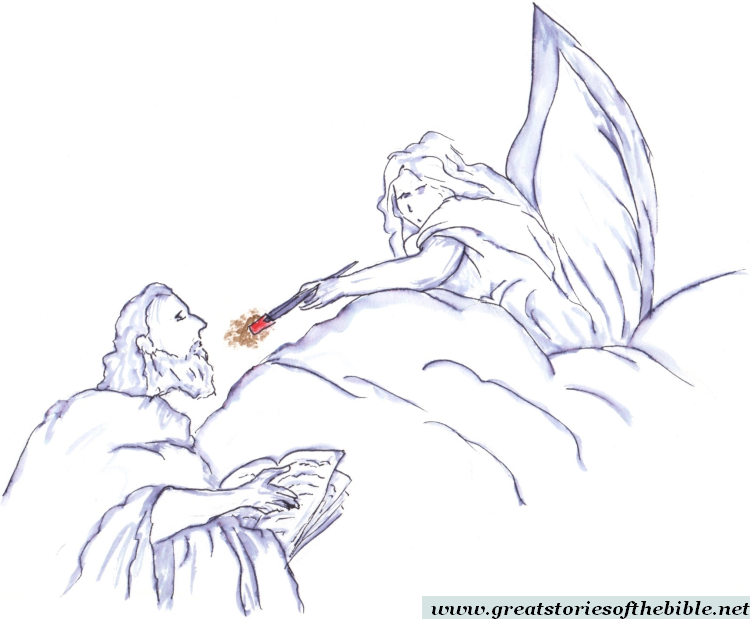Isaiah - episode 1
Here I am. Send me!
With this post we start reading the Prophets, following the biblical order of their books. Who is a prophet? The word comes from the Greek prophētēs, that can be translated as “he who speaks in front of [someone else]” (his ministry is for the people), “he who speaks in place of [someone else]” (the Lord’s messenger), “he who speaks before [something happens]” (a predictor of the future). Even the original Hebrew word nābî’ has similar meaning: it probably comes from the Akkadian word nabium (to call: a person who calls a message to the people, or a person called by God).
Scholar A. Heschel proposed an idea that gathers all these meanings. The God described in the Bible has a very special characteristic, that would seem inappropriate to His perfection and omnipotence: the pathos to His creatures, in particular man and woman. It is indeed a deep and interested participation in their stories: the Bible presents it as a passionate love for His people, or wrath and indignation because of the evil committed by them, His desire for justice and so on. The pathos is something wanted by God, it is not suffered by Him like human passions; furthermore, it is not necessary for Him, it is an act of free generosity. The prophet receives the gift of participating to the Lord’s pathos, the Lord’s point of view about the world and the historical events. This way he becomes a messenger to the people: the message can be about the past, the present and the future (only in the latter case the prophecy can be considered a prediction). The prophet’s authority is even superior to the king’s one, because he speaks in the place of God (see Deut 18,18-19).
The first of the prophets we read is Isaiah; he operates in the kingdom of Judah in the VIII century BC. I remind you that after King Solomon’s death, the Hebrew monarchy split into two separated kingdoms: Israel in the north and Judah (ruled by King David’s offspring) in the south. Isaiah lives in a quite rich society, with strong differences between wealthy and poor social classes, and a relative political autonomy (threatened by the aggressive Assyrian power). Here is the story of his calling: «In the year that king Uzziah died, I saw the Lord sitting on a throne, high and lifted up; and his train filled the temple. Above him stood the seraphim. Each one had six wings. With two he covered his face. With two he covered his feet. With two he flew. One called to another, and said, “Holy, holy, holy, is the LORD of hosts! The whole earth is full of his glory!” The foundations of the thresholds shook at the voice of him who called, and the house was filled with smoke. Then I said, “Woe is me! For I am undone, because I am a man of unclean lips, and I dwell in the midst of a people of unclean lips: for my eyes have seen the King, the LORD of hosts!” Then one of the seraphim flew to me, having a live coal in his hand, which he had taken with the tongs from off the altar. He touched my mouth with it, and said, “Behold, this has touched your lips; and your iniquity is taken away, and your sin forgiven.” I heard the Lord’s voice, saying, “Whom shall I send, and who will go for us?” Then I said, “Here I am. Send me!”» (Isa 6,1-8).
Like all the chosen ones, Isaiah feels little and poor before the Glory of the Lord, but God enables him to the mission (do you remember Moses and his five objections? See Moses - episode 2). In his calling is present the awareness that the prophetic ministry is often not successful, but it meets the people’s opposition. «He said, “Go, and tell this people, ‘You hear indeed, but do not understand; and you see indeed, but do not perceive.’ Make the heart of this people fat, and make their ears heavy, and shut their eyes; lest they see with their eyes, and hear with their ears, and understand with their heart, and turn again, and be healed.”» (Isa 6,9-10). Biblical Hebrew has not two different forms to express a purpose and a consequence: these verses express the consequence of Isaiah’s preaching to the people’s hardened heart, namely a further hardening instead of repentance and conversion.